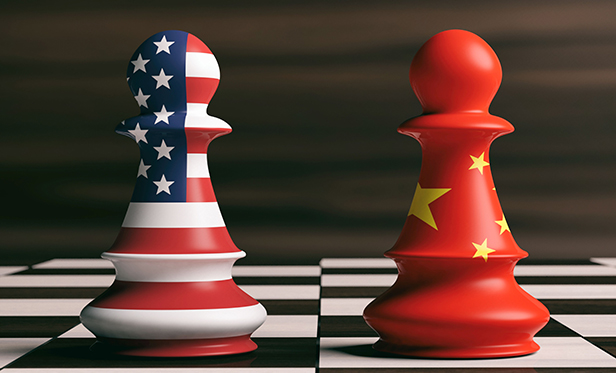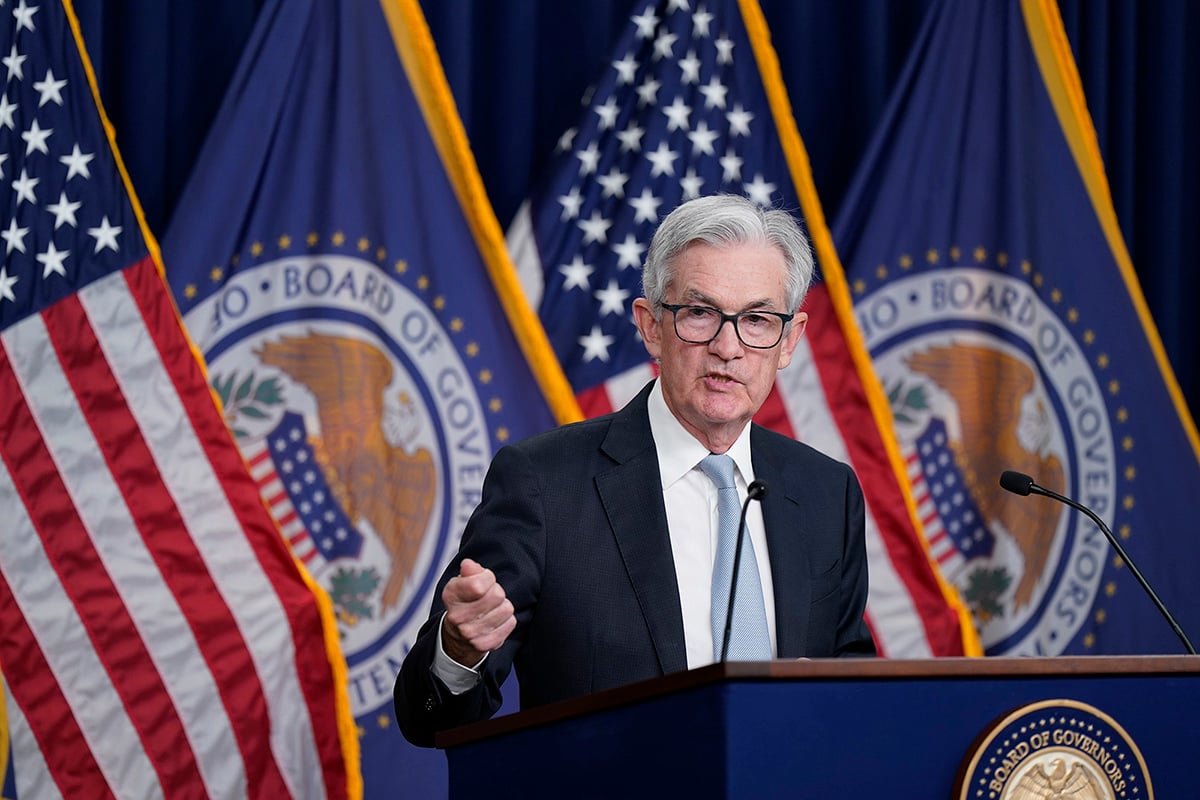
China announced it will take retaliatory tariff action against$60 billion of U.S. goods, sharply escalating the trade conflict asthe Trump administration considers imposing duties on almost allChinese imports.
|China's retaliatory tariffs, on items ranging from meat to wheatand textiles, will take effect on Sept. 24, China's Ministry ofFinance said in a statement posted on its website. Beijing is stillready to negotiate an end to the trade tensions with the U.S., theministry said.
|At almost the same time Beijing released its list ofcounter-tariff targets, President Donald Trump on Tuesdaythreatened more punitive measures against China if it targetspolitically potent U.S. agricultural products for retaliation.
|“China has openly stated that they are actively trying to impactand change our election by attacking our farmers, ranchers, andindustrial workers because of their loyalty to me,” Trump said onTwitter. “What China does not understand is that these people aregreat patriots.”
|In an announcement on Monday, Trump ordered his administrationto levy 10 percent tariffs on about $200 billion in Chinese goodson Sept. 24 and to increase the rate in January to 25 percent ifBeijing refuses to offer trade concessions. The latest round ofduties comes on top of a 25 percent tariff already imposed on about$50 billion in Chinese goods, which triggered retaliation fromBeijing on the same amount of U.S. imports.
|Beijing's plans for tariffs on $60 billion of U.S. goodsincludes an additional 5 percent duty on about 1,600 kinds of U.S.products including smaller aircraft, computers, and textiles, andan extra 10 percent on more than 3,500 items including chemicals,meat, wheat, wine, and LNG. In a previous announcement from August, thoseproducts had faced extra tariffs of up to 25 percent.
|Stocks shrugged off the latest ratcheting up of trade tensions,with the S&P 500 Index, Dow Jones Industrial Average, andNasdaq Composite Index all higher as of 10:45 a.m. in New York. Thecalm reaction has some investors saying the markets had alreadypriced in 10 percent tariffs and that it could've been worse.
|Trump on Monday said that the U.S. will immediately pursueadditional tariffs on about $267 billion of Chinese imports ifBeijing strikes back against American farmers and industry. Thethird batch of tariffs, together with the previous rounds, wouldmore than cover all products the U.S. imports from China, whichwere worth about $505 billion last year.
|The president and his fellow Republicans face some politicalperil if Trump's trade battles have negative repercussions for someof their core supporters in farming and industrial states, withless than 50 days before the congressional midterm elections.
|The Trump administration's duties on $200 billion sparedsmartwatches and Bluetooth devices, bicycle helmets, high chairs,children's car seats, and playpens. They were among 300 tariffslines that were removed from a preliminary list of targets for U.S.duties.
|The Trump administration tailored its final list of Chinesetargets to help ensure American consumers don't feel the pinch,Commerce Secretary Wilbur Ross said Tuesday.
|“We were trying to do things that were least intrusive on theconsumer,” Ross said on CNBC. “We really went item-by-item tryingto figure out what would accomplish the punitive purpose on Chinaand yet with the least disruption in the U.S.”
|What a Bloomberg Economist Says
“Mounting U.S. pressure on China isunlikely to result in concessions from Beijing. The further blowson trade come at a time when the Chinese economy is alreadyslowing. A prolonged trade war could deepen the drag on growth—withlarger implications for Asia's supply chains.” —Chang Shu,Bloomberg Economics
Trump is ratcheting up pressure on Beijing in order to motivateit to change its trade practices. Business leaders are warning the high-stakesstrategy could up-end their supply chains and raise costs, aseconomists worry Trump's tactics could derail the broadest globalupswing in years.
|Trump's tariff campaign is also dividing his advisers betweenChina hawks like U.S. Trade Representative Robert Lighthizer, whoare determined to force sweeping changes to China's industrialpolicies, and Treasury Secretary Steven Mnuchin, a former WallStreet banker who is seeking a trade deal.
|China will reject new trade talks if Trump moves ahead with the$200 billion round of duties, throwing into doubt the prospect of adiplomatic breakthrough, two people familiar with the matter saidthis week. The administration earlier this month floated the ideaof talks led by Mnuchin, with Chinese Vice Premier Liu He expectedto lead the Beijing delegation.
|From: Bloomberg
|Copyright 2018 Bloomberg. All rightsreserved. This material may not be published, broadcast, rewritten,or redistributed.
Complete your profile to continue reading and get FREE access to Treasury & Risk, part of your ALM digital membership.
Your access to unlimited Treasury & Risk content isn’t changing.
Once you are an ALM digital member, you’ll receive:
- Critical Treasury & Risk information including in-depth analysis of treasury and finance best practices, case studies with corporate innovators, informative newsletters, educational webcasts and videos, and resources from industry leaders.
- Exclusive discounts on ALM and Treasury & Risk events.
- Access to other award-winning ALM websites including PropertyCasualty360.com and Law.com.
*May exclude premium content
Already have an account? Sign In
© 2024 ALM Global, LLC, All Rights Reserved. Request academic re-use from www.copyright.com. All other uses, submit a request to [email protected]. For more information visit Asset & Logo Licensing.






